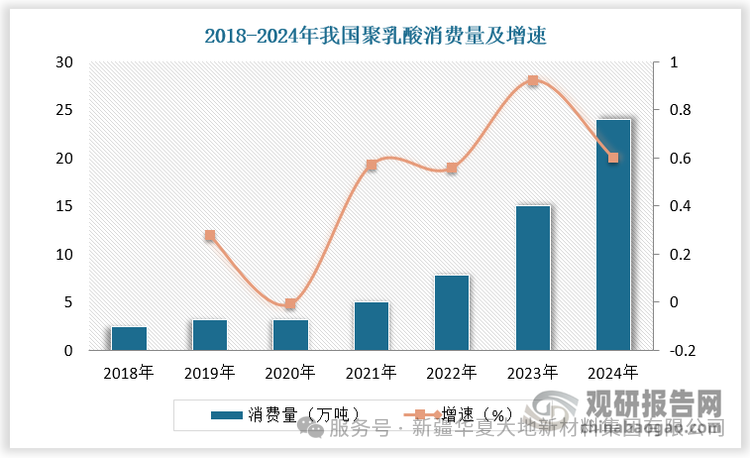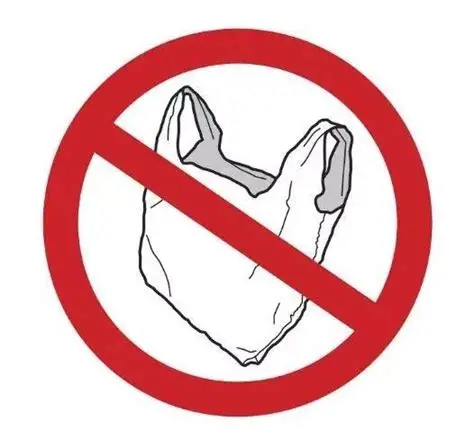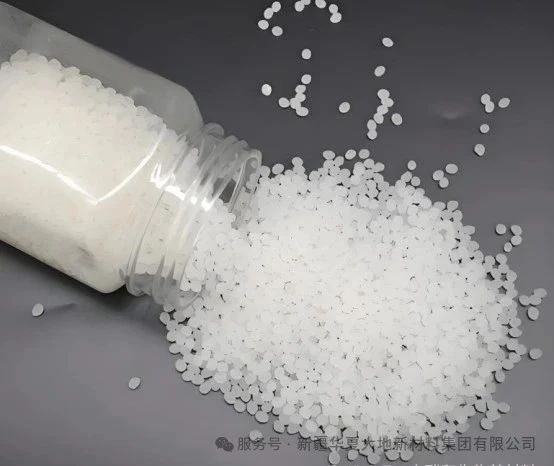Evidence from different countries and regions consistently shows that PLA decomposes in industrial composting within 2-3 weeks, which is much faster than the 12-week standard set by EN13432 certification.
Recently, TotalEnergies Corbion, a Dutch bioplastic producer, released a "Review of Compostable Plastics", highlighting the ecological advantages of compostable plastics. Consistent evidence shows that PLA decomposes within 2-3 weeks in industrial composting, which is much faster than the 12-week standard set by EN13432 certification.
Research and practices in different countries and regions have all provided strong evidence for the actual performance of compostable plastics.
The research of Wageningen University in the Netherlands focused on the degradation of PLA products in industrial composting. The results showed that whether it was small items like tea bags or thicker plant pots, PLA products could decompose rapidly. PLA flower pots were completely decomposed in 11 days, and PLA tea bags in 22 days. If there were any incompletely decomposed biological waste after the first composting cycle, recycling treatment could ensure the complete degradation of PLA products, fully demonstrating that EN13432 certified plastic products are compatible with the shorter industrial composting cycle in the Netherlands.
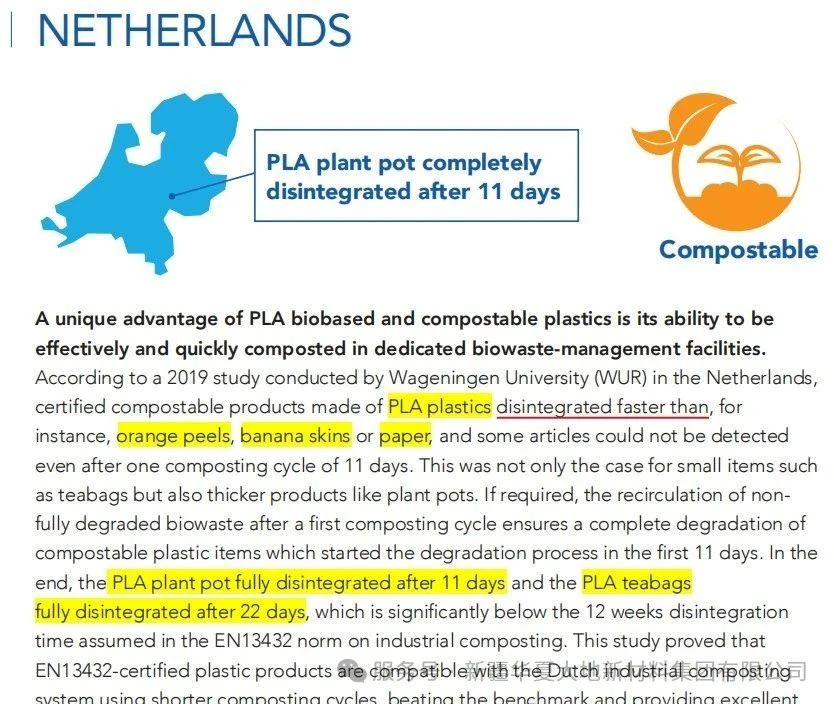 A joint study by the Autonomous University of Madrid and the University of Alcalá in Spain, which lasted for five months and covered five composting facilities, found that despite differences in collection systems and treatment technologies among the facilities, no fragments of compostable bioplastic were detected in the final compost. This once again indicates that traditional plastic is the main source of compost pollution. 94% to 98% of the microplastics in the compost came from traditional plastic, while compostable plastics (such as PLA) were not detected.
A joint study by the Autonomous University of Madrid and the University of Alcalá in Spain, which lasted for five months and covered five composting facilities, found that despite differences in collection systems and treatment technologies among the facilities, no fragments of compostable bioplastic were detected in the final compost. This once again indicates that traditional plastic is the main source of compost pollution. 94% to 98% of the microplastics in the compost came from traditional plastic, while compostable plastics (such as PLA) were not detected.
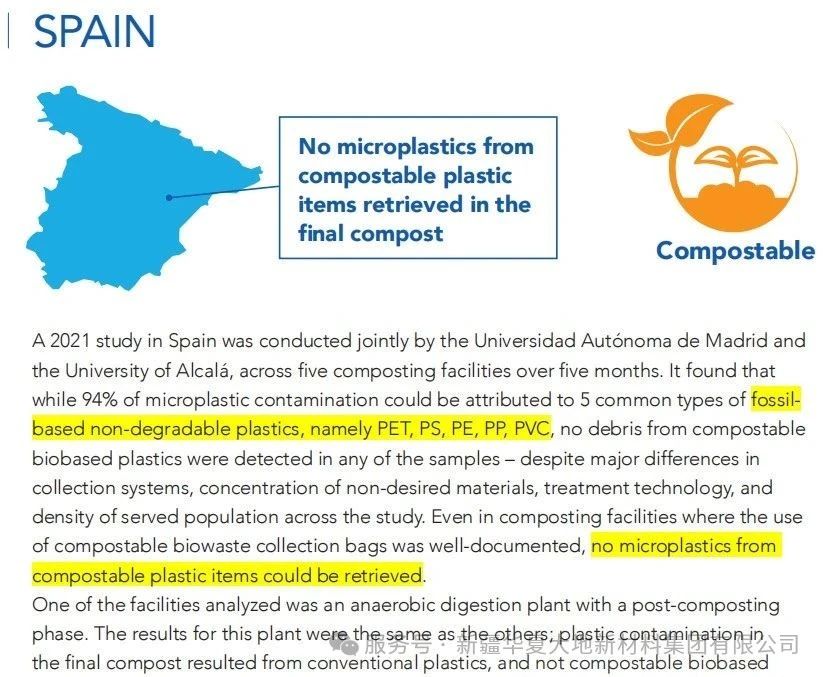 Field research conducted by the Witzenhausen Institute in Germany and the University of Bayreuth analyzed 10 final compost samples from 8 different biowaste treatment plants. The data shows that the vast majority of plastic particles in the compost come from traditional non-biodegradable plastics, while the proportion of biodegradable plastic film particles is extremely small. This indicates that compostable bags that meet the EN13432 standard do not pose a threat to the quality of compost.
Field research conducted by the Witzenhausen Institute in Germany and the University of Bayreuth analyzed 10 final compost samples from 8 different biowaste treatment plants. The data shows that the vast majority of plastic particles in the compost come from traditional non-biodegradable plastics, while the proportion of biodegradable plastic film particles is extremely small. This indicates that compostable bags that meet the EN13432 standard do not pose a threat to the quality of compost.
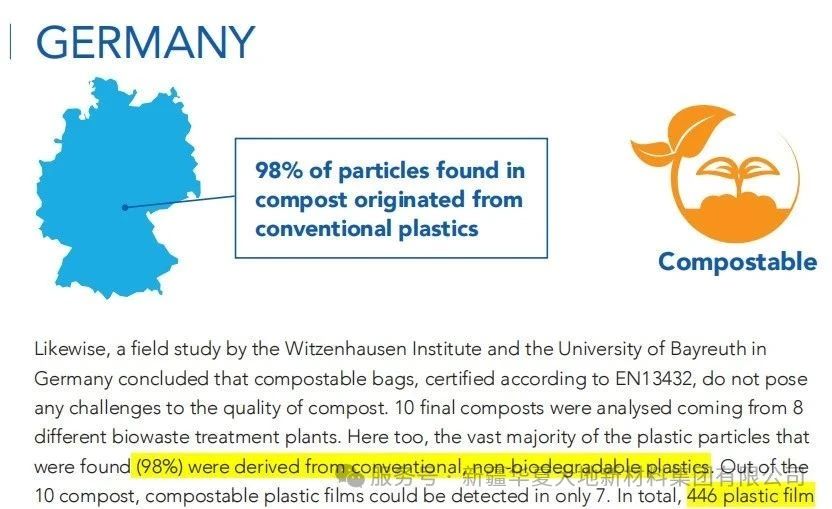 The assessment coordinated by the Italian Composters Association (CIC) was carried out in multiple Italian bio-waste treatment facilities, where compostable plastic packaging was mixed with organic waste in different proportions for processing. The results showed that compostable plastics could effectively biodegrade in industrial facilities, with an average degradation rate of 95% to 96%, and the content of conventional plastics in the compost samples was below the regulatory limit.
The assessment coordinated by the Italian Composters Association (CIC) was carried out in multiple Italian bio-waste treatment facilities, where compostable plastic packaging was mixed with organic waste in different proportions for processing. The results showed that compostable plastics could effectively biodegrade in industrial facilities, with an average degradation rate of 95% to 96%, and the content of conventional plastics in the compost samples was below the regulatory limit.
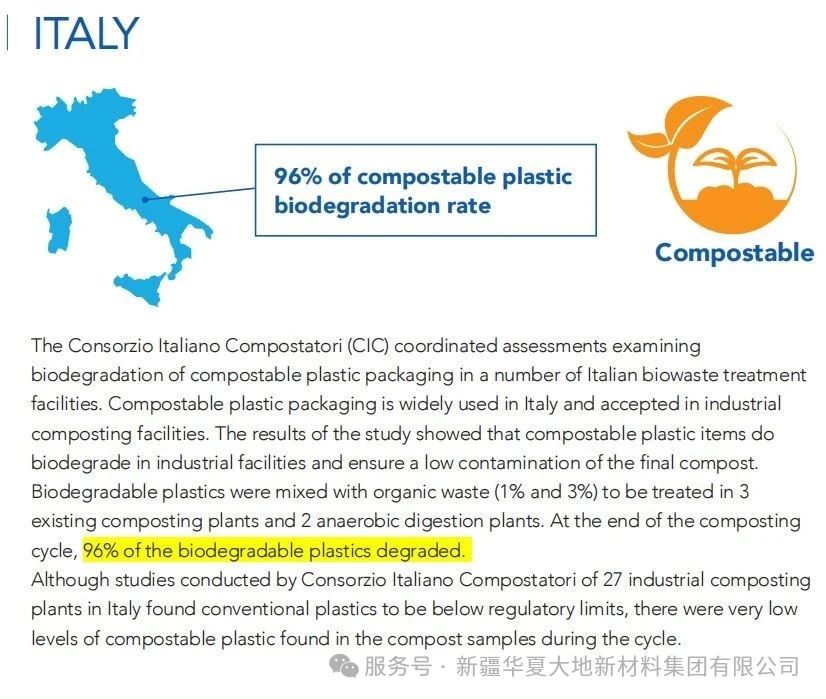 TotalEnergies Corbion also stated that the cautious approach towards plastic usage aims to establish a circular product life cycle, prioritizing reuse and mechanical recycling. However, the reality is that approximately 72% of plastic packaging is ultimately landfilled or enters the natural environment. In this context, the adoption of compostable plastics in appropriate scenarios becomes an effective solution to long-term plastic pollution. It can complement the existing recycling system and achieve a material closed-loop through composting processing.
TotalEnergies Corbion also stated that the cautious approach towards plastic usage aims to establish a circular product life cycle, prioritizing reuse and mechanical recycling. However, the reality is that approximately 72% of plastic packaging is ultimately landfilled or enters the natural environment. In this context, the adoption of compostable plastics in appropriate scenarios becomes an effective solution to long-term plastic pollution. It can complement the existing recycling system and achieve a material closed-loop through composting processing.


